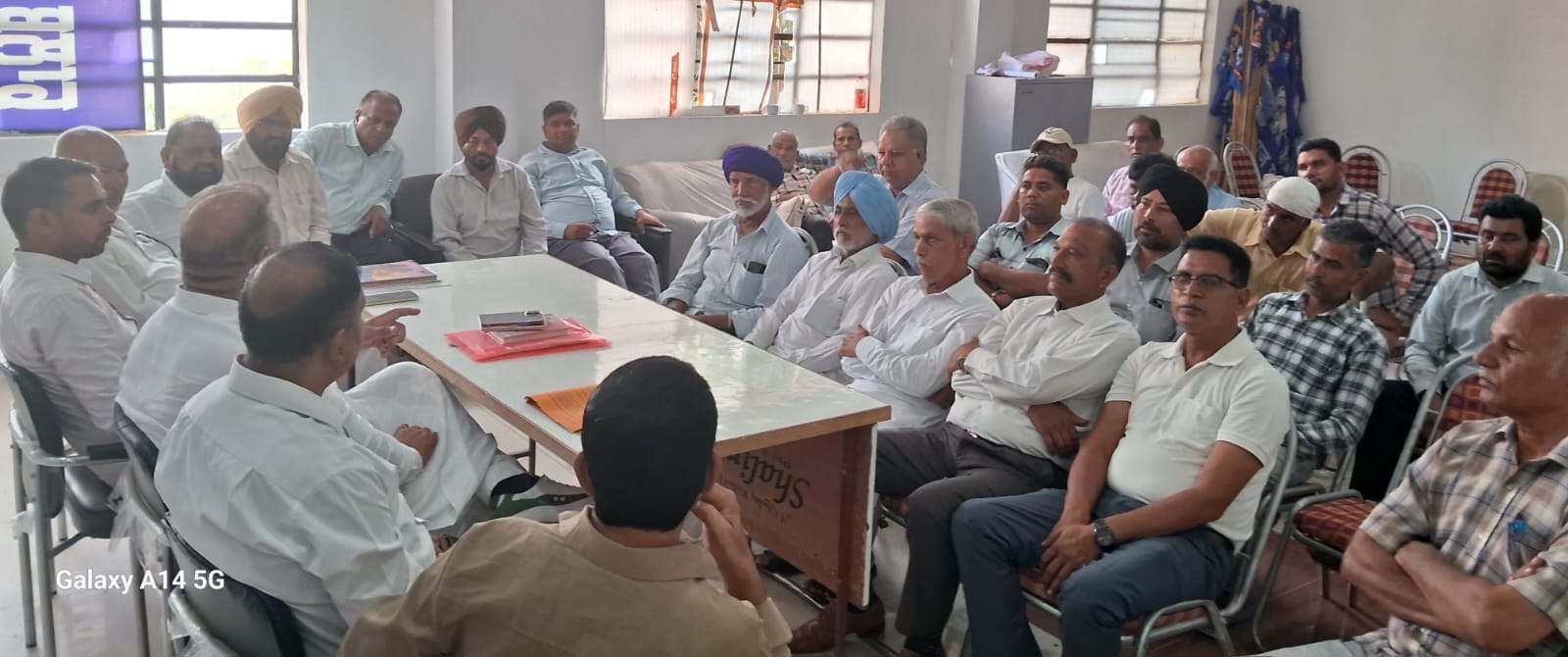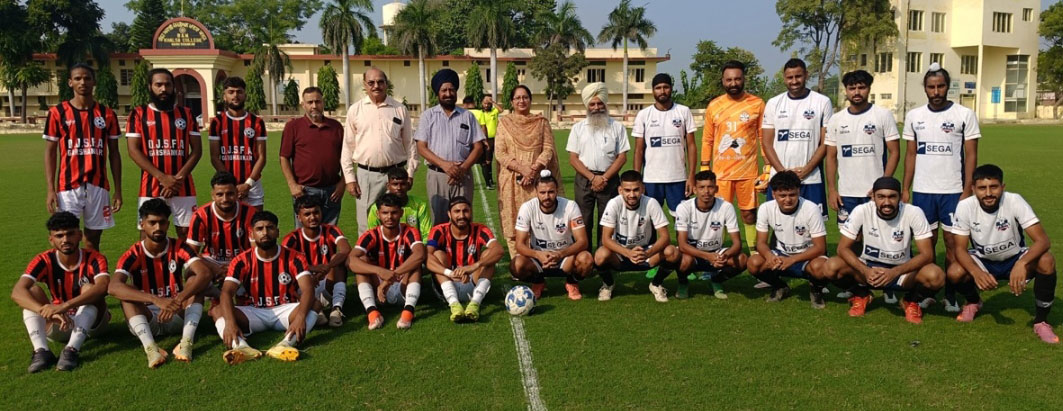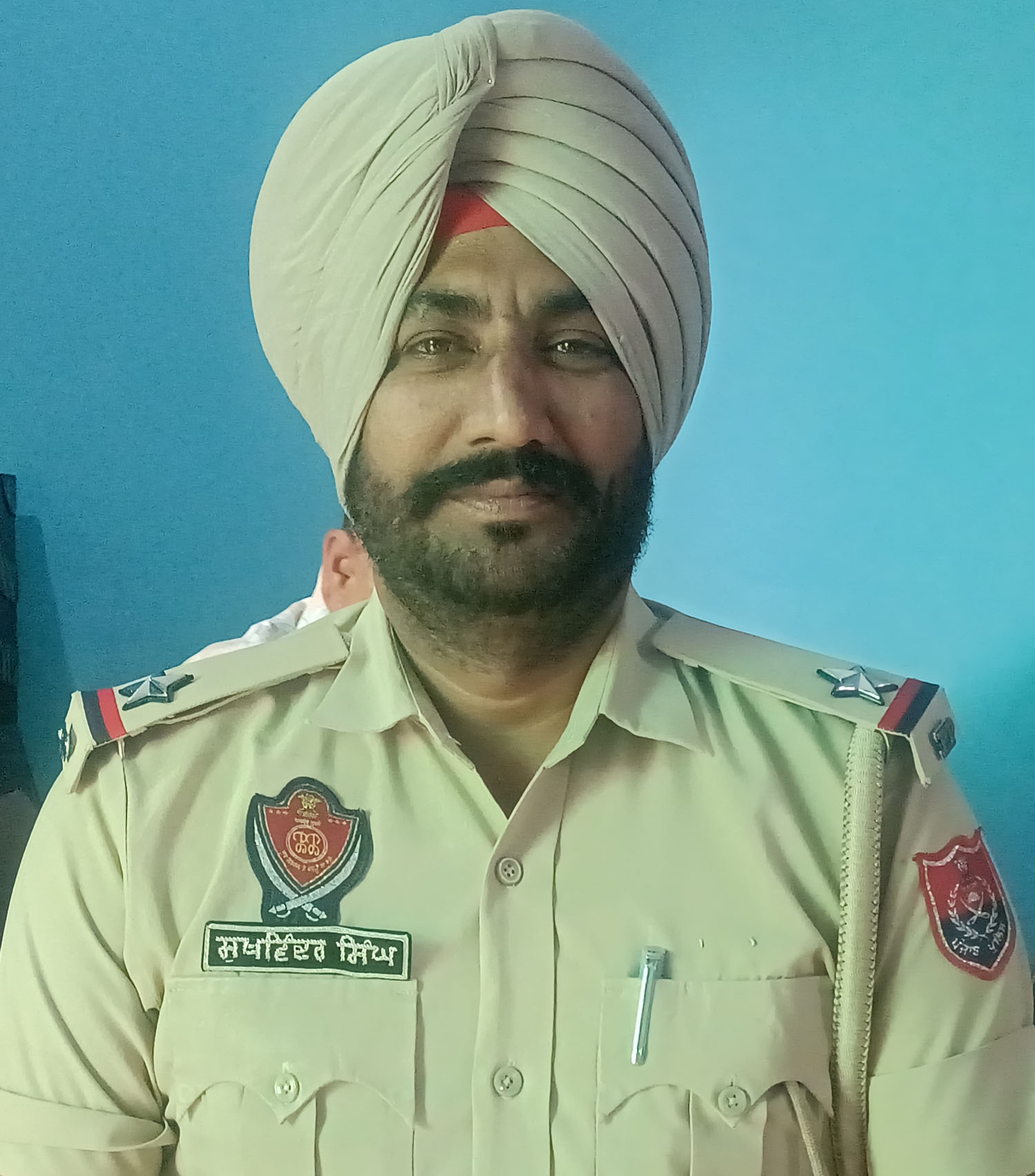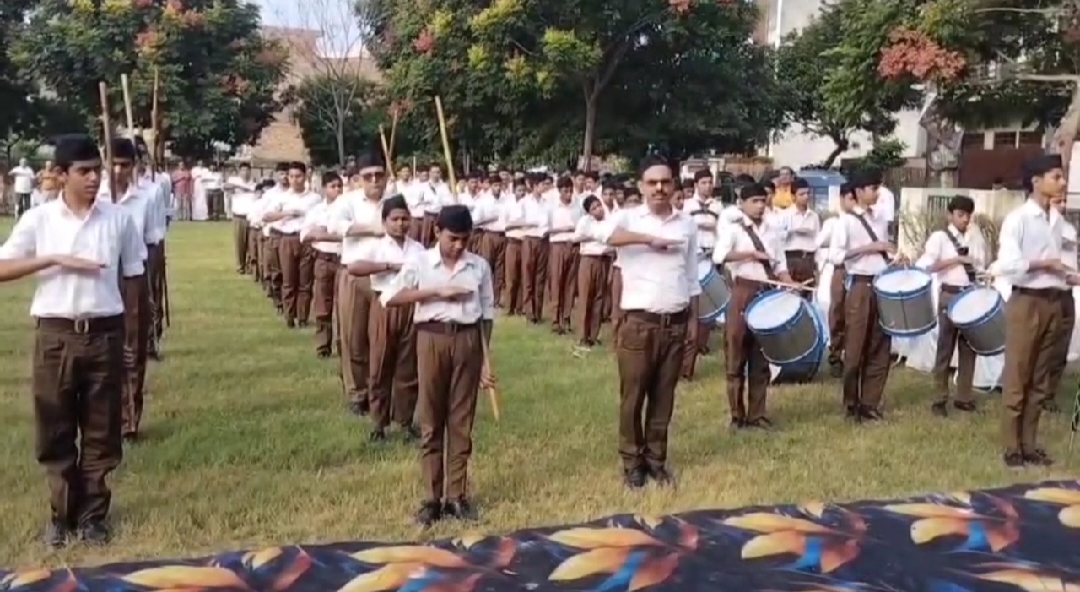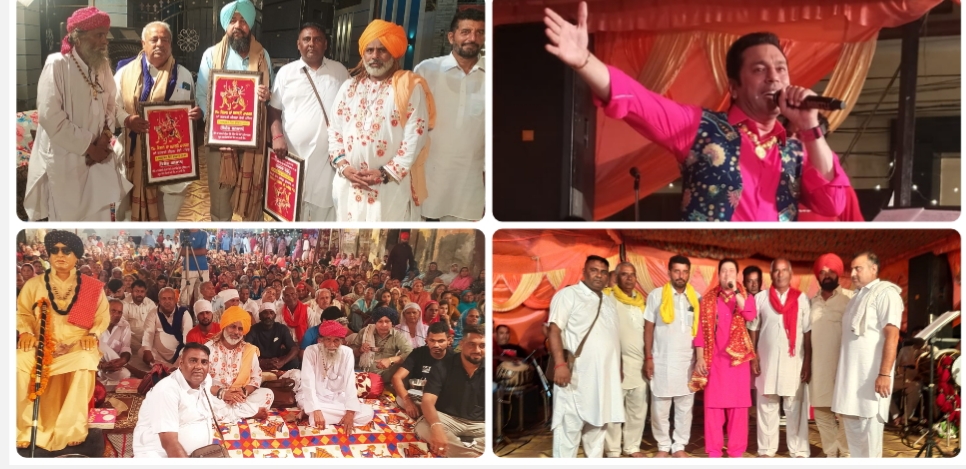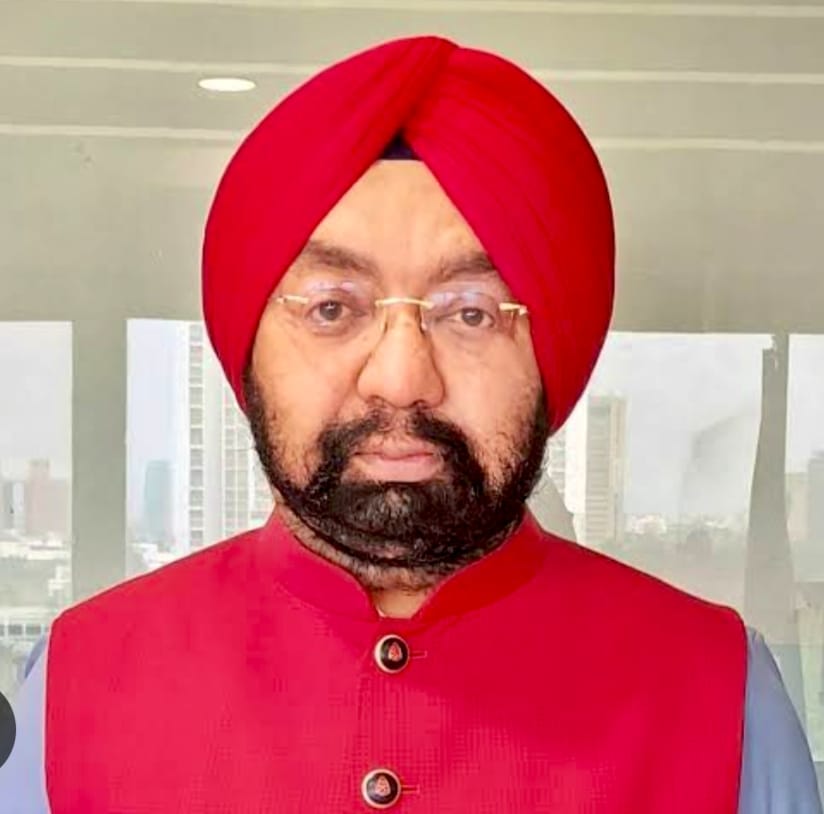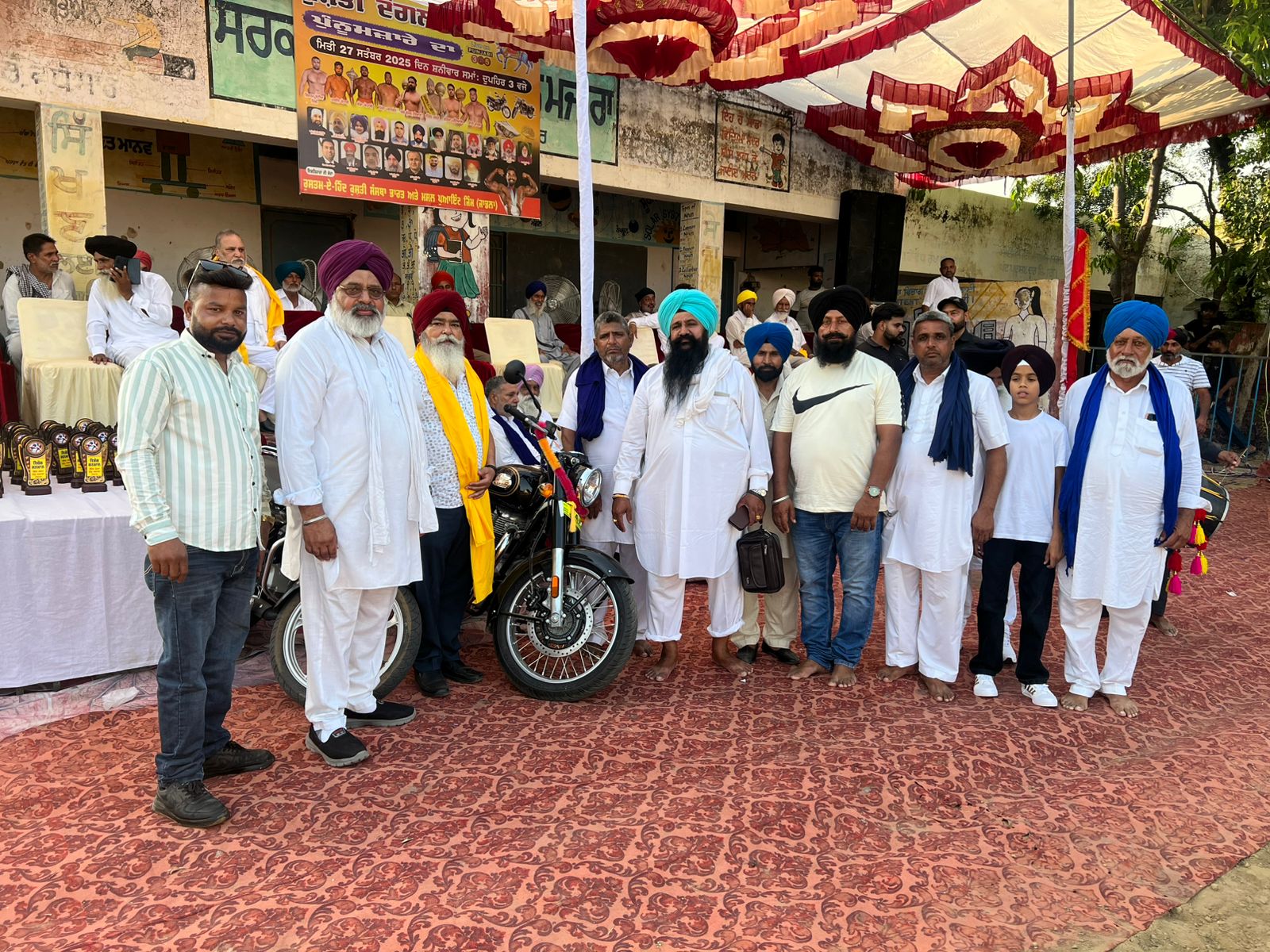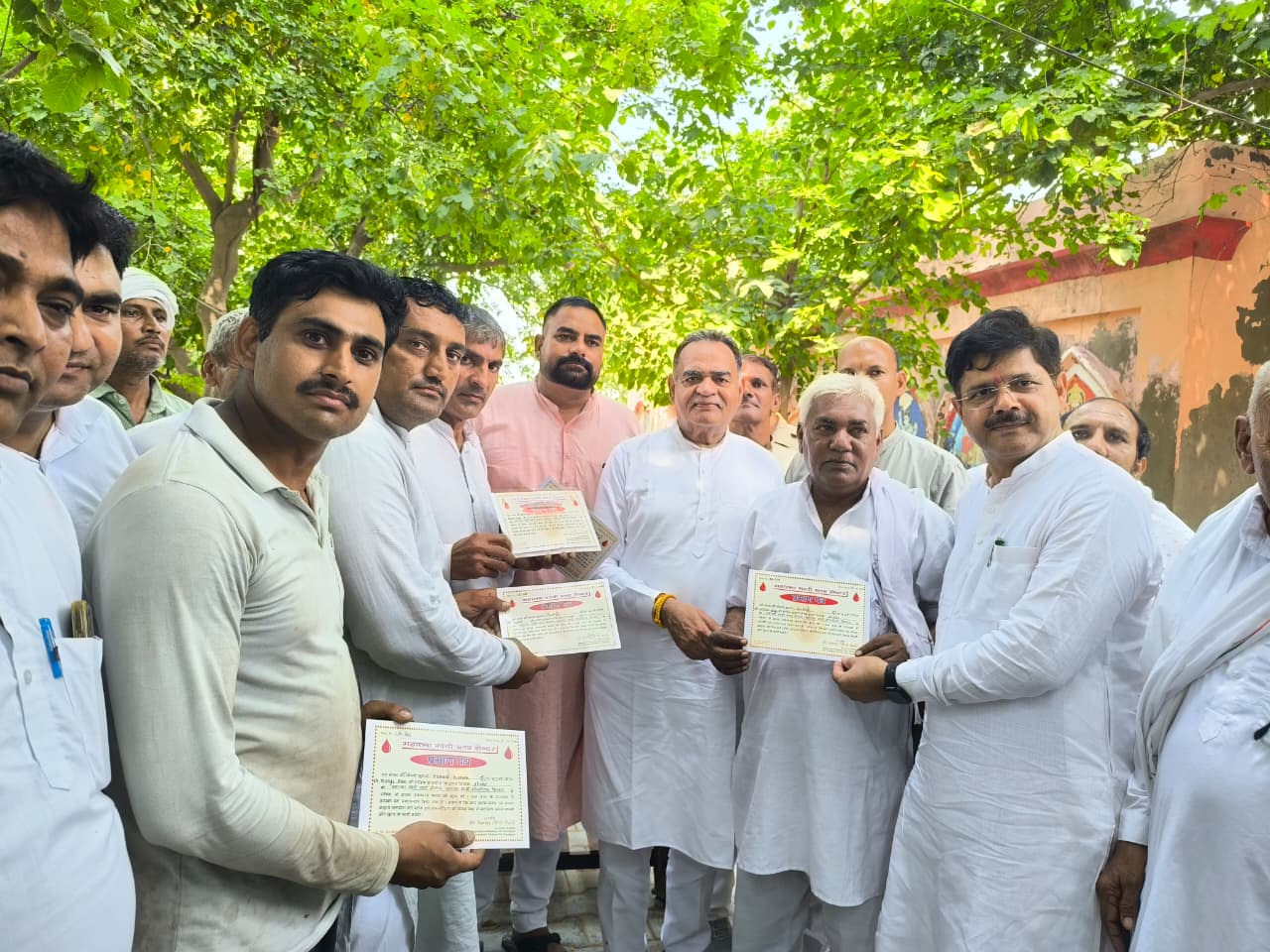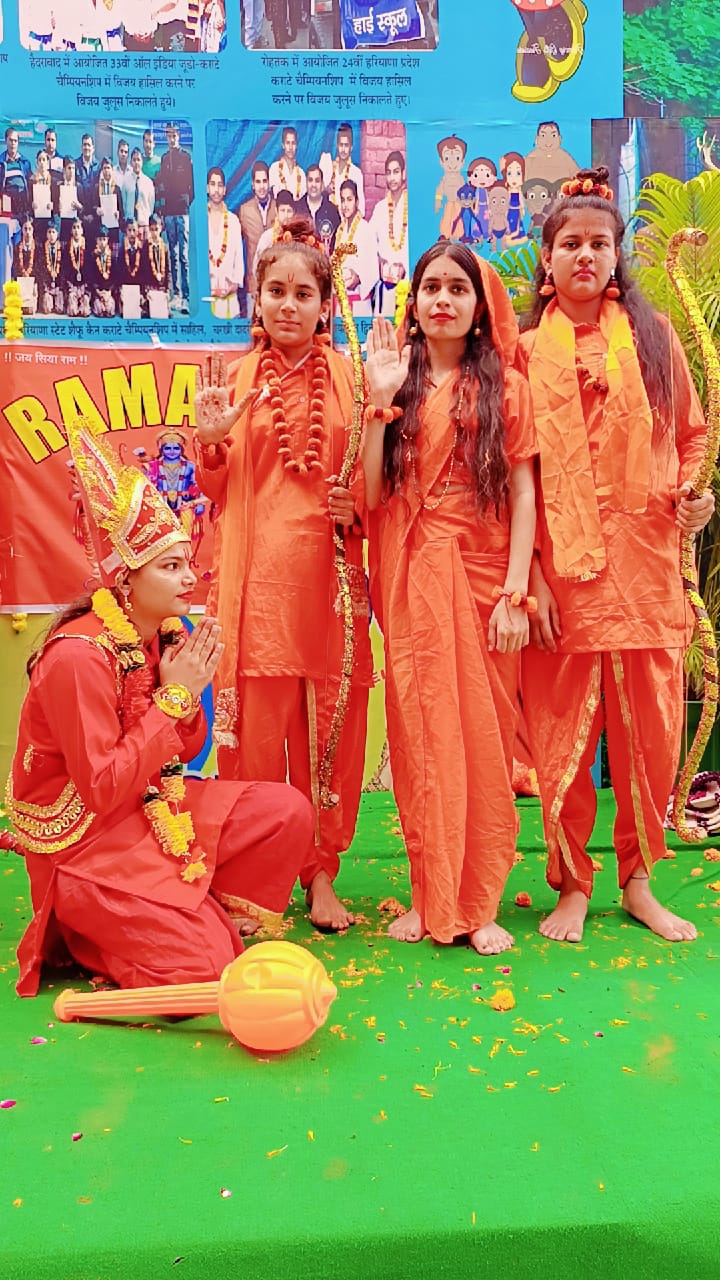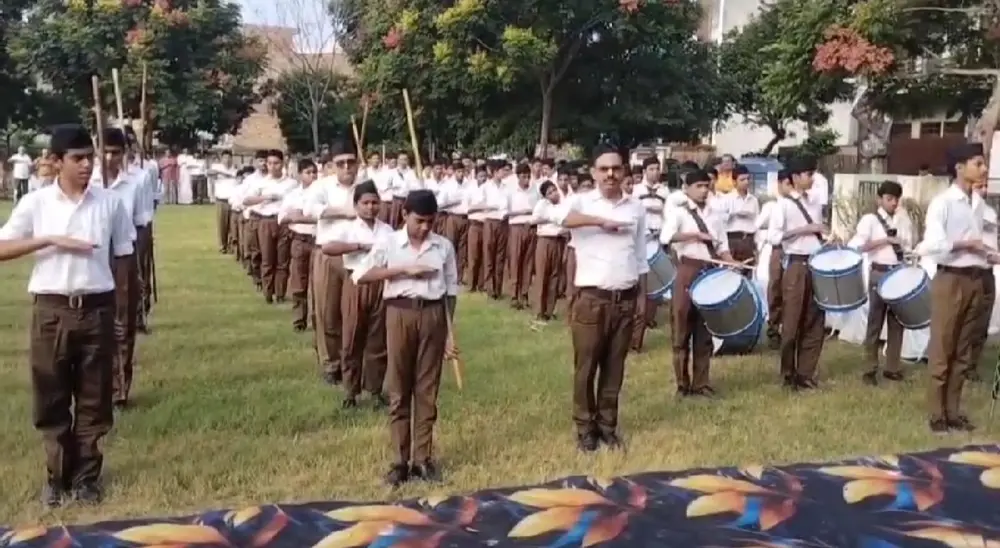
Overcoming every challenge, the Sangh grew even greater; the Sangh completed 100 years of discipline, service, and social welfare!
Karnal, October 2: The Rashtriya Swayamsevak Sangh, founded on an unwavering commitment to discipline, service, cultural awakening, and social welfare, has completed its 100th year. Various programs were organized across the state to mark the completion of its centenary, a grand, and nationalistic journey. In Karnal, the Rashtriya Swayamsevak Sangh performed the Shastra Pooja (worship of weapons) on the occasion of Dussehra.
Karnal, October 2: The Rashtriya Swayamsevak Sangh, founded on an unwavering commitment to discipline, service, cultural awakening, and social welfare, has completed its 100th year. Various programs were organized across the state to mark the completion of its centenary, a grand, and nationalistic journey. In Karnal, the Rashtriya Swayamsevak Sangh performed the Shastra Pooja (worship of weapons) on the occasion of Dussehra.
Following this, workers in full uniform led a procession through the city accompanied by slogans and musical instruments, with volunteers ranging from 8 to 80 years of age participating. Dr. Rajendra Kumar Yadav, Director of the Central Soil Salinity Research Institute, was the chief guest, while Rameshwar Das, Executive Member of the Rashtriya Swayamsevak Sangh, delivered a message to the volunteers as the keynote speaker.
Prior to this, the volunteers held a shakha (branch) and saluted the flag. A large number of dignitaries from the city also attended the event. Addressing the volunteers, keynote speaker Rameshwar Das extended his best wishes for Dussehra and the Sangh's centenary. He said that on this day, good triumphed over evil. We worshipped Goddess Durga and various forms of the Goddess on nine different days.
He said that since 1925, our 100-year journey has been unbroken. Circumstances have changed, but our work has continued uninterrupted. The Sangh was subjected to numerous bans, accusations of Mahatma Gandhi's assassination, and attacks on its workers. But "truth cannot be harmed." The then government formed the Kapur Commission, which exonerated the Sangh. The court also ruled that the Sangh had no role in Mahatma Gandhi's assassination.
Rameshwar Das said that in independent India, Sangh volunteers had to resort to Satyagraha, only then was the ban lifted. He explained that the Sangh faced its second ordeal in 1975, when the Emergency was imposed. Lakhs of volunteers were arrested, but the Sangh emerged victorious. After each ban, the Sangh emerged even larger and stronger. He said that the Sangh's 100-year journey was full of difficulties. Gradually, society began to understand and accept us.
Today, the country's environment is favorable for the Sangh. Unity and integrity in society come at a price, and the Sangh has paid that price. As we age, our responsibilities and society's expectations also increase. Therefore, we must work with greater awareness and consciousness. He outlined five principles for social change, called the Panch Parivartan (five transformations): social harmony, family enlightenment, cleanliness, environmental protection, civic duty, and the use of Swadeshi (indigenous). Every citizen of the country must adopt these principles; only then can India be made a strong nation.
He said that foreign powers want to subjugate India; to do this, we must adopt Swadeshi and become self-reliant. Everyone must work together to take the nation to its ultimate glory. Rameshwar Das said that nation building is possible only through individual development. The Sangh is engaged in the work of individual development today. Volunteers formed from the Sangh's educational classes go to various areas of society and work to build society and make national life happy. Whenever any disaster or crisis strikes society, Sangh volunteers stand in the forefront to help.
Dr. Rajendra Yadav, Director of the Central Soil Salinity Research Institute, said that the work done by the Sangh in the field of society, nation and its development cannot be praised enough. As we grow older, we should strive for more good. There is no high or low, small or big in society. By moving forward with this spirit, the country and society will also progress. He congratulated the Sangh on completing 100 years. A large number of Sangh volunteers including District Sangh Chalak Dr. Bharat Thakur were present in the program.

